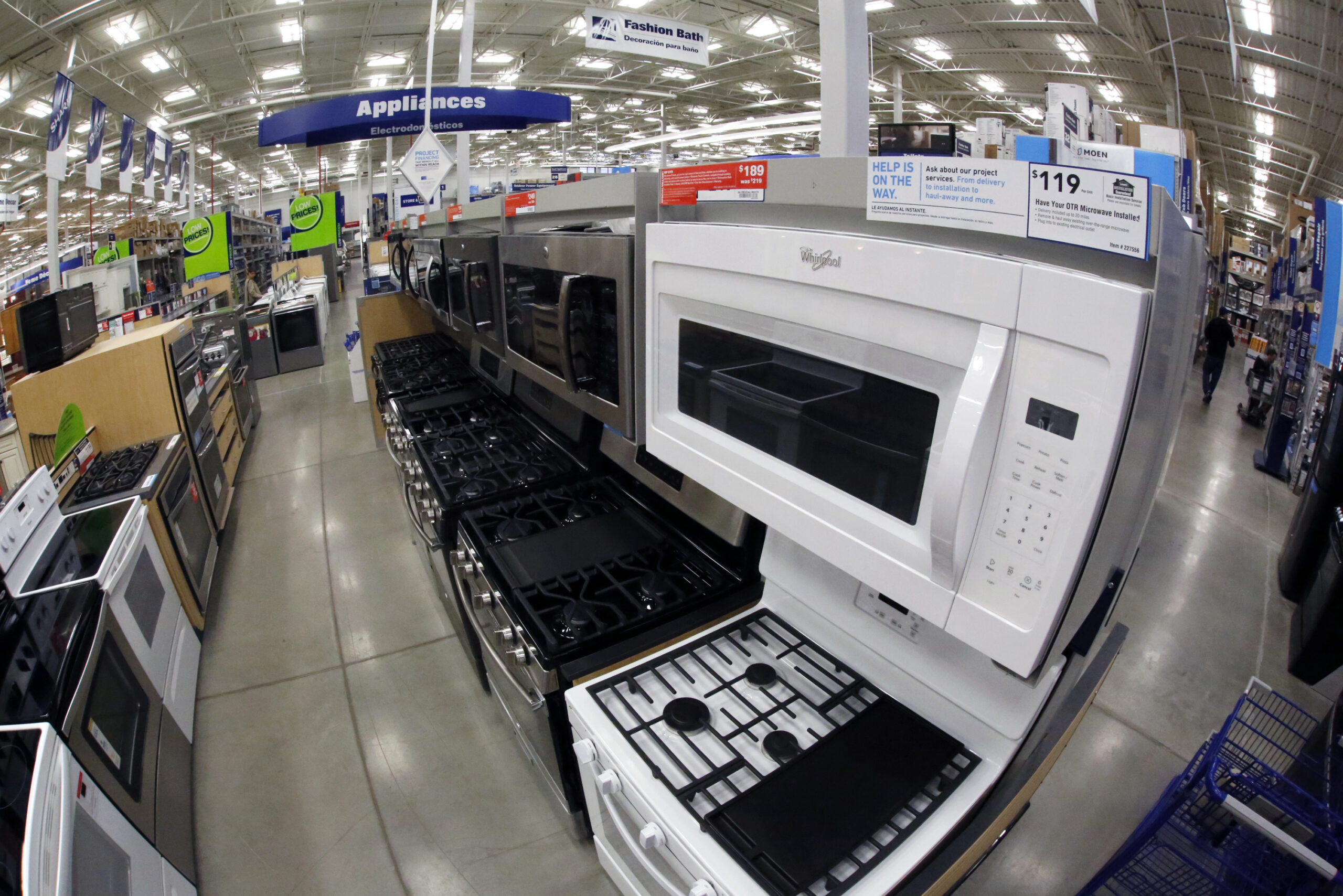

During Donald Trump’s presidency, “infrastructure week” in Congress was a thing that the White House kept trying and failing to make happen. It became a running joke on social media because Trump never did manage to persuade lawmakers to put the desired $1 trillion infrastructure spending package on his desk.
It remains to be seen if the House Republicans’ “Appliance Week” will meet a similar fate. It has already been delayed once. That delay was due to an exchange of drones between Iran and Israel the weekend before American Tax Day.
The GOP House leadership gave us what they called a “robust foreign policy week” instead, culminating in legislation that gives money to Israel, Ukraine, and Taiwan and attempts to force the Chinese firm that owns TikTok to divest. President Joe Biden signed that package into law faster than you can say, “Four more years, pause.”
Had foreign policy not taken center stage, the House was set to vote on a series of creatively titled appliance-themed bills. These include the Stop Unaffordable Dishwasher Standards Act, aka the SUDS Act, the Refrigerator Freedom Act, the Liberty in Laundry Act, and the Hands Off Our Home Appliances Act.
The bills are short enough for any member of Congress to read in full. The SUDS Act is six pages long and mostly intelligible to the layman. It orders that the “Secretary of Energy may not prescribe a new or an amended energy conservation standard for a covered product that is a dishwasher … unless the Secretary of Energy determines that the prescription and imposition of such energy conservation standard is technologically feasible and economically justified” and then goes on to add some teeth to those terms.
Unlike infrastructure week legislation, these appliance bills don’t carry a large price tag, which makes holding an eventual do-over appliance week that much easier.
Progressive critics were predictably dismissive of the GOP’s delayed legislative push. The New Republic reported that the bills had “drawn widespread scorn” and charged that “Republicans have yet to encounter a household object they won’t try to turn into a culture war.”
A few House Republicans have gone on the record with appliance week skepticism, though not about the substance of the bills. “With any material vote, we’ve relied predominantly on Democrat votes,” House Freedom Caucus Chairman Bob Good (R-VA) lamented to Axios. “And then we want to pass messaging bills, that have no future in the Senate, to show what we stand for.”
At present, any appliance week bills that pass the House look like a dead letter in the Democratic-controlled Senate, but so are most bills. This is true even in the best of legislative times.
The 118th Congress, with its slim GOP majority in the House and narrow Democratic majority in the Senate, has had just 179 pieces of legislation “enacted,” according to data from GovTrack.us, for a 1% clearance rate. (These numbers include smaller bills that were later bundled into larger bills.)
That is a low percentage to become law. Yet, historically, the bills-introduced-to-bills-passed ratio has always been a high bar to clear. The previous Congress, the 117th, had 1,234 pieces of legislation enacted. Even with that far more activist Congress and sympathetic president, only 7% of bills introduced made it into law.
The message that Republicans are selling with these bills is also broadly popular with their own voters in an election year. The Trump administration began to loosen regulations of home appliances that had made the appliances both more costly and less effective. Biden’s bureaucracy reversed the Trump liberalizations and then some.
The Biden administration has proposed more stringent standards, and made moves to constrain sources of heat and electricity that power those appliances, which tends to further drive up the price. Federal agencies have targeted natural gas stoves and furnaces, dishwashers, washing machines, and other devices.
CLICK HERE TO READ MORE FROM THE WASHINGTON EXAMINER
Such actions can be unpopular with voters even in deep blue states such as New York. Last year, a Siena College poll found that Democratic Gov. Kathy Hochul’s efforts to “Essentially prohibit all fossil fuel-burning equipment — including stoves — for new single-family homes by the end of 2025 and for all new construction by the end of 2028” were not favored. Local respondents opposed the regulations by 53% to 39%.
That’s a message House Republicans will likely continue to push through Election Day, even if chances for enacting “Appliance Week” proposals into law are near zero.




